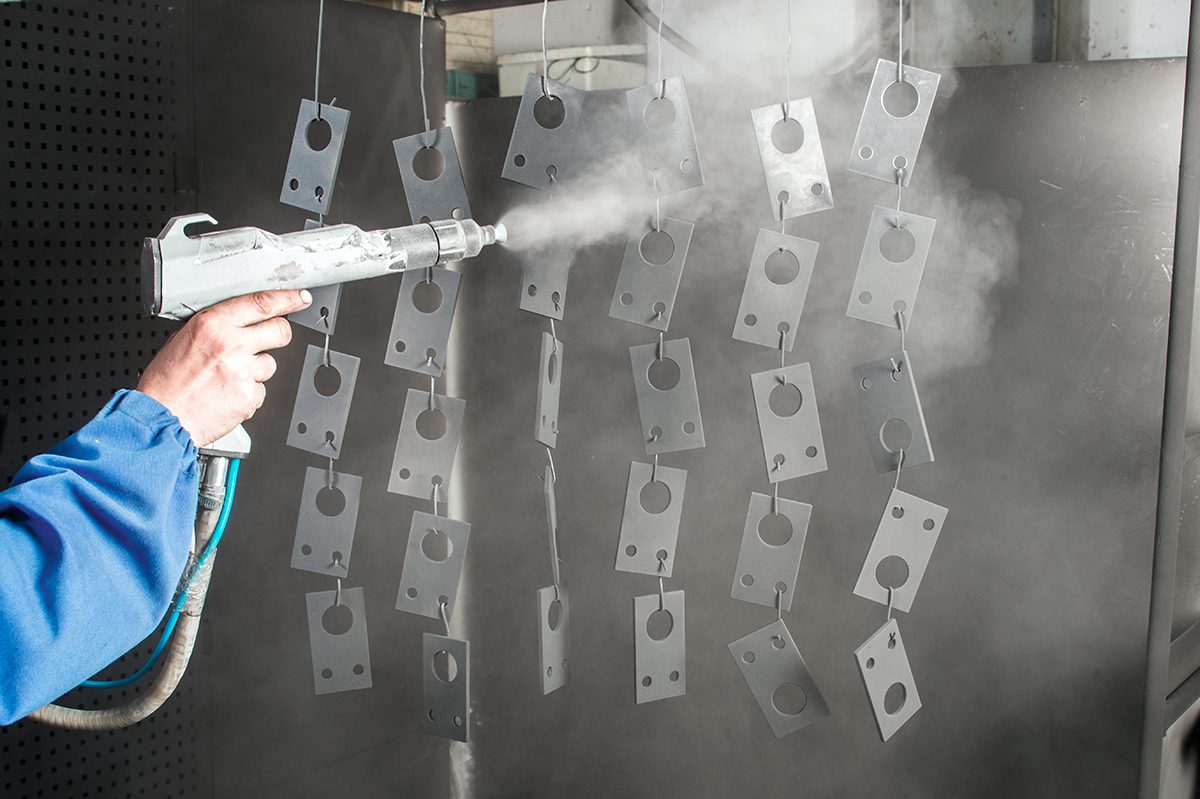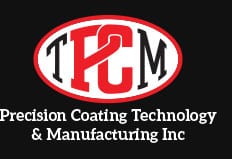Medical-Grade Powder Coating: Biocompatibility Testing for Medical Devices

The medical industry understandably has high expectations for the equipment they use. Strict regulations push medical professionals to choose only the best equipment and only the most effective tools. That’s why more and more OEMs and engineers are turning to powder-coated medical devices. Medical-grade powder coatings are used across the industry to provide doctors and nurses with medical equipment that uses the protective layers of powder coating. This finish does not interfere with patient success and helps provide exceptional care to the patient.
Powder coating is a process that has a wide array of uses and benefits. These coatings are resistant to wear and tear, form a solid layer when applied over the material, and come in a wide array of materials that have unique benefits and applications. We at Precision Coating Technology & Manufacturing (PCTM) are experienced with a full array of such coatings, including medical-grade powder coatings.
This blog post will walk through some of the finer details of powder coatings in the medical industry. And if you are ready to enhance your medical equipment and experience these benefits, request a quote today!
What Makes a Medical-Grade Powder Coating?
Have you ever heard horror stories about medical professionals who caused injury due to defective medical equipment? Hundreds of professionals each year lose their licenses and practices because they assumed their tools were medical-grade. Don’t risk the same in your medical practice.
Powder coatings are a type of protective coating that is applied to metal surfaces to prevent corrosion and damage. These coatings come in many forms that are tailored to different needs. They are applied to metal equipment using methods like electrostatic charge, dry film lubricant, fluid bed dip coating, and plastisol coating. Once the powder coating is cured in high-temperature ovens, they are hardened into a protective layer.
The durability and resistance of these coatings are far superior to simple paint finishes, which provide more porous and brittle results. Medical-grade powder coatings offer superior durability, performance, and safety to medical equipment of all kinds. These higher-quality coatings also help prevent adverse reactions and promote biocompatibility.
The chemical processes involved result in a coating composed of long molecular chains. The high density of these chains provide your equipment with a highly stable and resistant coating. This density also prevents microbial growth and provides a surface that is easier to sterilize.
Meeting Regulatory Demands
The International Organization for Standardization (ISO) 10993 is a long-standing set of standards that have been used as the basis for many other regulatory standards developed afterward. More than a dozen sets of standards have been established, and ISO10993-1 is the standard for safety in the medical device industry. These standards are written in response to countless illnesses, injuries, and deaths that occurred from the poor practices beforehand.
The principles established by this document are excellent guidelines for the medical industry, but for our purposes, the most important two can be summarized as:
- Leachable chemicals should be factored into the toxicology of a device
- The chemicals and materials patients are exposed to should be considered
As such, regulatory bodies have strict requirements for all materials used in the creation and manufacture of medical equipment. The FDA itself is in constant conversation with the ISO in order to develop more stringent regulations for medical equipment.
A major benefit of medical-grade powder coatings is that they form a naturally antimicrobial layer to the treated equipment. For sterility and hygiene, this is an invaluable trait to have. Additionally, the cross-link density of the molecular chains in a medical-grade powder coating results in a stable structure that is stable and resistant to breakdown, helping to prevent unnecessary patient exposure from direct or indirect contact.
At PCTM, we understand the strict needs of medical professionals. We will walk through your specific needs and desires as we find a medical-grade powder coating that will exceed your expectations. Reach out today to provide your medical devices with a layer of protection and safety.
Elevating Biocompatibility
While debates continue on whether biocompatibility implies inertness in the host or positive reactions from the host, medical-grade powder coatings enhance biocompatibility testing for both definitions. For instance, a common coating in the medical field is polytetrafluoroethylene or PTFE. This fluoropolymer is resistant to most liquids for easily cleaned and sterilized equipment – such as dental tools, diagnostic tests, and surgical equipment.

PTFE is FDA-approved for medical devices that are in clinical use. Medical-grade powder coatings go through thorough testing before being applied to equipment that interacts with the human body. This material is also commonly used in food processing plants and cooking equipment. You might be more familiar with a copyrighted and more specific formula of PTFE—Teflon®.
The sterility and highly inert nature of these coatings can improve biocompatibility testing outcomes by providing equipment with a layer of protection. This coating is resistant to wear and tear, corrosion, and electrical conductivity. By avoiding adverse reactions with a long-lasting and stable coating, biocompatibility is improved, which is a major benefit in medical equipment and furniture.
Optimized Material Selection
With our coating services we are able to apply coatings of different types to a wide variety of materials. While many are medical-grade, not all are equal. PTFE is among the most common, but there are several material options available. Each batch of coatings is selected based on relevant criteria such as:
- Cost
- Corrosion resistance
- Chemical resistance
- Electrical insulation
- Friction coefficient
- Heat resistance
- Tensile strength
- Difficulty and length of processing
PTFE is rated high upon most of these criteria and is commonly used in medical devices, but other materials may meet more specific needs. Your medical devices are critical to your work, as well as the health of your patients. Reach out today and learn more about the materials and treatment methods available for your medical-grade powder coating needs.
Prioritize Safety and Health
Sterile environments are a basic need in the healthcare field. Cross-contamination can pose serious health risks to both the provider and patient alike. Even malpractice suits and loss of licensing can result from this kind of error. You need absolute confidence that the equipment and stations you work with will be easy to clean, sterilize, and maintain.
The medical-grade powder coatings that we offer have been used by many medical professionals. When applied to medical devices, you can be confident in a durable and trustworthy surface. The medical-grade powder coatings that we offer will help prevent environmental risks and prevent the presence of harmful microbes.
Precision Coating Technology & Manufacturing has been in the field of powder coatings for more than three decades. We can guarantee a finish on your medical devices that meets regulatory standards and patient safety requirements. We have the confidence and assurance that comes with experience and cooperation with medical professionals. Reach out today, and we will answer any questions about our processes and the benefits of a professionally applied medical-grade powder coating.
Resources:

